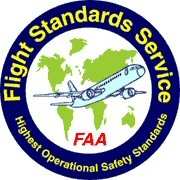FSS Modernization On Track For October Changeover
 The modernization of the flight
service station system is moving forward. The next big step comes
on October 4th when Lockheed-Martin takes over operations
under a contract paid for and supervised by the FAA.
The modernization of the flight
service station system is moving forward. The next big step comes
on October 4th when Lockheed-Martin takes over operations
under a contract paid for and supervised by the FAA.
AOPA supports this change to the FSS program because, "After
more than five years of detailed AOPA investigations into the costs
of the FSS system and attempts to provide modernization funds, and
concurrent work by several government agencies, we are convinced
that this is the right thing at the right time for the benefit of
GA pilots," said AOPA President Phil Boyer. "And we will get these
significantly improved services funded by aviation taxes, not user
fees."
AOPA concluded that the FAA was unable to effectively modernize
the current system, and that caused mounting inefficiencies and
escalating costs. The system costs more than $550 million a year to
operate (that's far more than the $60 million a year GA contributes
to the aviation trust fund), but doesn't meet the operational needs
of pilots.
"Anybody who's listened on hold to 'all briefers are busy' for
twenty minutes on a busy flying day knows that," said Boyer.
The Lockheed-Martin contract guarantees phone calls will be
answered within 20 seconds, radio calls acknowledged within 5
seconds. There are no such guarantees or performance metrics in the
current system, nor does the FAA have any systems installed to
measure telephone hold times or abandon rates.
 Briefers will also have access to an
integrated database, so that every briefer can get every piece of
information a pilot needs, unlike today's balkanized system where a
pilot sometimes needs to know that a notam exists in another flight
service station so he can ask his briefer to retrieve it. Pilots
are also guaranteed that no matter when they call the new flight
service system, they can get a briefer who's been trained and
certified on local area weather patterns and operations.
Briefers will also have access to an
integrated database, so that every briefer can get every piece of
information a pilot needs, unlike today's balkanized system where a
pilot sometimes needs to know that a notam exists in another flight
service station so he can ask his briefer to retrieve it. Pilots
are also guaranteed that no matter when they call the new flight
service system, they can get a briefer who's been trained and
certified on local area weather patterns and operations.
However, there may be some service glitches during the "ramp up"
phase as FAA employees transfer to Lockheed-Martin and the
contractor upgrades equipment.
"Pilots should report any difficulties with FSS services to
AOPA," said Andy Cebula, AOPA senior vice president of government
and technical affairs. "We'll make sure the problem is reported and
rectified."
Pilots have also reported to AOPA some rumors that are being
circulated about the change to Lockheed-Martin.
"This is a big change for long-time government employees, and
some of them are understandably unhappy," said Cebula. "But the
rumors pilots are hearing are just plain wrong."
One accusation is that AOPA has not supported the FSS employees
in their concerns for job losses or the need to relocate. There is
no question that this outsourcing move is not an easy one for the
many dedicated and competent FSS specialists who continue to serve
pilots with their expertise — and who never were a part of
the problem.
 "However, AOPA is not the union for
this workgroup," said Boyer. "Our role has been to look out for the
interests of the nations' pilots, and make sure they continue to
receive free and efficient inflight and preflight information.
"However, AOPA is not the union for
this workgroup," said Boyer. "Our role has been to look out for the
interests of the nations' pilots, and make sure they continue to
receive free and efficient inflight and preflight information.
"Sadly, nobody is guaranteed a job for life any more, not even
in the government. Pilots understand the need for a twenty-first
century FSS system and the need to significantly the costs of
providing that service. They also understand that ultimately a few
hundred people might lose jobs but they have a hard time trading
that off for the needs of more than 600,000 pilots.
"In a recent AOPA survey, the overwhelming majority of our
members told us that they would be satisfied with the government
contracting out FSS services."
 Airbus Racer Helicopter Demonstrator First Flight Part of Clean Sky 2 Initiative
Airbus Racer Helicopter Demonstrator First Flight Part of Clean Sky 2 Initiative Diamond's Electric DA40 Finds Fans at Dübendorf
Diamond's Electric DA40 Finds Fans at Dübendorf ANN's Daily Aero-Term (04.23.24): Line Up And Wait (LUAW)
ANN's Daily Aero-Term (04.23.24): Line Up And Wait (LUAW) NTSB Final Report: Extra Flugzeugbau GMBH EA300/L
NTSB Final Report: Extra Flugzeugbau GMBH EA300/L Classic Aero-TV: 'Never Give Up' - Advice From Two of FedEx's Female Captains
Classic Aero-TV: 'Never Give Up' - Advice From Two of FedEx's Female Captains





